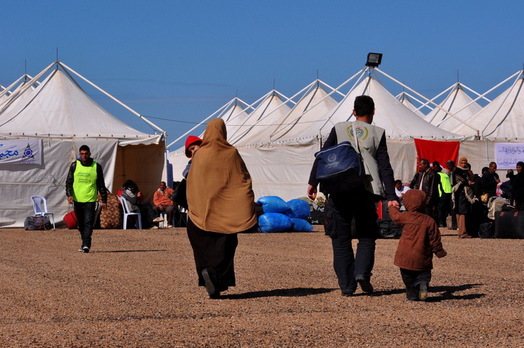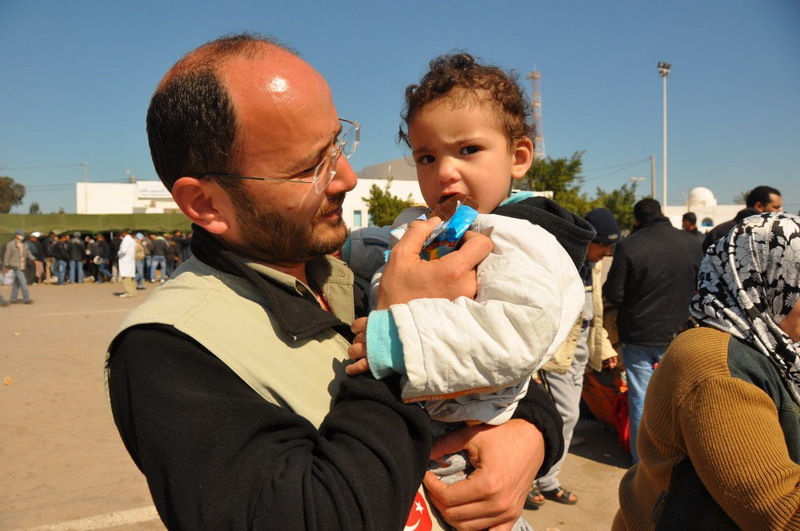
The IHH aid teams which organize relief efforts at the Ras Jedir frontier post on the Libyan-Tunisian border have managed to have access to the Turks who have difficulty in fleeing Libya in the wake of the public unrest in the country. The IHH teams helped 46 Turks to join 50.000 others who were waiting to pass Tunisia. The Turks were provided with food and drinks after they passed the border and they were sent to the hotels set by the Turkish Embassy via buses.
IHH Emergency Aid Coordinator Recep Güzel said the IHH organized the evacuation of Turks from Libya in cooperation with Turkish Ambassador to Tunisia Akın Algan. He noted that 500 others including Vietnamese and Bangladeshi were given help to pass the Libyan border to go to Tunisia.
Noting that the IHH continues emergency relief efforts at the Libyan-Tunisian border, Güzel said: “People are flocking to the Tunisian border to save their lives. Most of them have no food or back-up clothes. We are trying to extend a helping hand to these people. We distributed hot meals to 7.000 foreign people lastly. There are tens of thousands of people entering from the Tunisian border every day. Most of them are Egyptian workers; however, many of them are unable to go to Egypt due to financial problems. There is a pileup of Egyptian citizens at the border. People are lying on the pavements and roadsides. Tunisians are doing their best to control the situation. And we continue to provide food, clothing and medical services to people who pass the border.”
Supply of medication for Libya
In the meantime, gradual consumption of medication stocks of Libya has alerted the IHH teams to supply the necessary medications from Egypt and carry them to the hospitals in Libya.

IHH deputy chairman Ahmet Sarıkurt who has been leading relief efforts in Libya’s Benghazi noted that 1.000 workers were provided with food packages. Noting that the IHH teams visited the orphanages in the region, Sarıkurt said: “We distributed clothing to 50 children. We provided financial assistance to 79 families who live in shanty houses.”
Libyans do not want Americans in the country
Sarıkurt also shared his impressions about the latest situation in the country as he explained: “Control of the country’s second largest oil-producing region, Jalu, has been taken over by the regime opponents. The youth in cities where the control is taken over by the public are going to Tripoli for the siege. We heard that the military base in Benghazi was also taken under control by the regime opponents. The Libyan public continues their resistance to overthrow Muammar Gaddafi. In the meantime, the Libyan public does not welcome the prospects of the American intervention in Libya. A demand by the US State Department for a meeting in Libya has been turned down. The Libyan public wants to get rid of Gaddafi through their own means.”